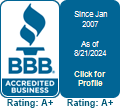If you’re versed in the transportation industry’s current state, you have likely heard the phrase “capacity crunch.” With the experts predicting that there will continue to be significant increases in goods moved by truck, carriers are monitoring and adjusting their shipments to ensure that the capacity available is strategically being used. When it is not, a shipper is going to pay for the unusable area in which no other freight can be loaded by the carrier. This scenario often occurs when products or palletized shipments are tall, wide or long.
Even though customers may have agreed upon pricing with carriers, they will be subject to the carrier’s rules tariff in which there are exceptions that may apply if the shipment qualifies. Within the tariff, there may be clauses that allow the calculation of the shipment’s required cubic footage to actually be 96 inches high or wide. Also, when a shipment requires 20 feet or more of floor space or weighs 20,000 pounds or more, or when an article of the same dimensions hypothetically cannot be placed in the same trailer, the shipment may be subject to a capacity load charge. Carriers often have rules stating that, for a certain amount of cubic footage, a minimum density must be met. When the minimum is not met, the carrier will apply charges to the freight bill to reflect the minimum density. This is referred to as a density minimum charge shipment. Shippers could also be facing lineal foot charges if a shipment reaches a certain length in the trailer. This could be very costly, as it is often based on a certain rate per mile.
The rules mentioned above can quickly result in higher shipping costs. Capacity rules are sometimes concluded by stating that if applicable pricing calculations result in lower charges than the customer’s specific pricing does, then the greater of the two charges will apply. Understanding the qualifiers, determining configurations, pricing calculations and any exceptions that exist can easily become overwhelming. Our “Smart” Auditors handle these types of invoices on a daily basis and can determine if you are being overcharged. Let AMTR ensure that you are only paying for what is applicable to the shipment and nothing more.





There are no comments yet, but you can be the first